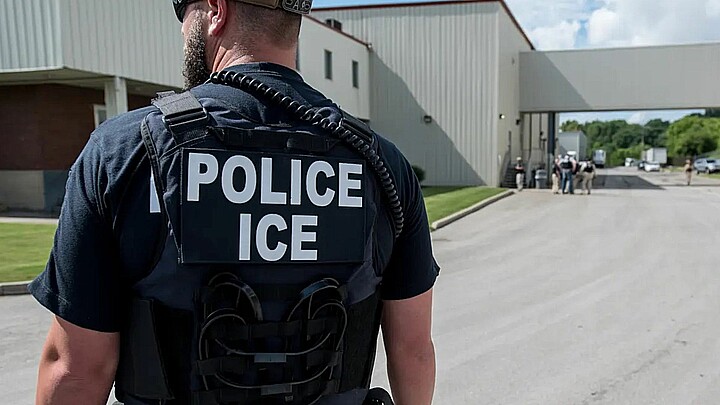Immigration
Republican states challenge Biden administration’s immigration policy in court
Lawmakers from Ohio, Arizona and Montana have come together to challenge the rules established last year by Homeland Security Secretary Alejandro Mayorkas
February 17, 2022 10:40am
Updated: February 17, 2022 2:29pm
Republican-led states asked a federal judge in Ohio to scrap the Biden administration’s immigration policy that limits arrests and deportations, arguing that the new rules outlined by the Department of Homeland Security amount to an “abdication” of duty under the law.
Lawmakers from Ohio, Arizona and Montana have come together to challenge the rules established last year by Homeland Security Secretary Alejandro Mayorkas that restrict which undocumented immigrants can be targeted for arrest and deportation, the Washington Times reported.
Ohio Deputy Solicitor General May Mailman told Trump-appointed U.S. District Judge Michael J. Newman that deportations for criminals including murderers, burglars, sexual assault convicts have plummeted in recent months.
“This is an abdication framework,” Ms. Mailman said.
In September of last year, Homeland Security Secretary Alejandro Mayorkas issued a memo stating that being in the U.S. without documentation is no longer sufficient cause for arrest or deportation and providing new guidelines for agents and officers.
In the memo, Mayorkas wrote, “Enforcement priorities for apprehension and removal remain focused on noncitizens who are a threat to our national security, public safety, and border security.” He added that the new guidelines “require an assessment of the individual and the totality of the facts and circumstances to ensure resources are focused most effectively on those who pose a threat.”
A second memo released in October limited where agents and officers could make arrests – instructing them to avoid taking action around schools, day cares centers, bus stops, clinics, parks, churches, social services offices or anywhere undocumented migrants might go to “seek assistance.”
Michael F. Knapp, a Justice Department lawyer, defended Mayorkas’ policies, stating that the new rules take “a more humanitarian approach” to immigration enforcement and asked the judge to toss the case, arguing that states don’t have the legal standing to sue as Mayorkas’ decisions
He added that 11 million undocumented migrants are “potentially removable” but as Congress hasn’t given DHS enough money to pursue them all, the law enables the government to decide the best way to make the money stretch.
Knapp went on to show the court that the number of aggravated felons arrested throughout a period in 2021 was nearly double the same period in 2020, even though the overall number of arrests decreased.
“That data showed that prioritization works. If you tell your officials, your line officials, to focus on threats to public safety, then there will be an increase in enforcement actions against threats to public safety,” Knapp said.
Ms. Mailman fired back, however, arguing that it is unfair to compare 2021 with 2020 as the pandemic shut down much of U.S. Immigration and Customs Enforcement’s activities.
Mayorkas’ rules go beyond priorities and put people entirely out of reach of immigration enforcement, she added.
The plaintiff states have asked for a preliminary injunction to block DHS’ current rules and both Texas and Louisiana are challenging the priorities in federal court in Texas.
ICE has yet to release its final 2021 data, but analysts believe the numbers will show a dramatic decrease in enforcement, which could serve to further undercut the Biden administration’s case.










